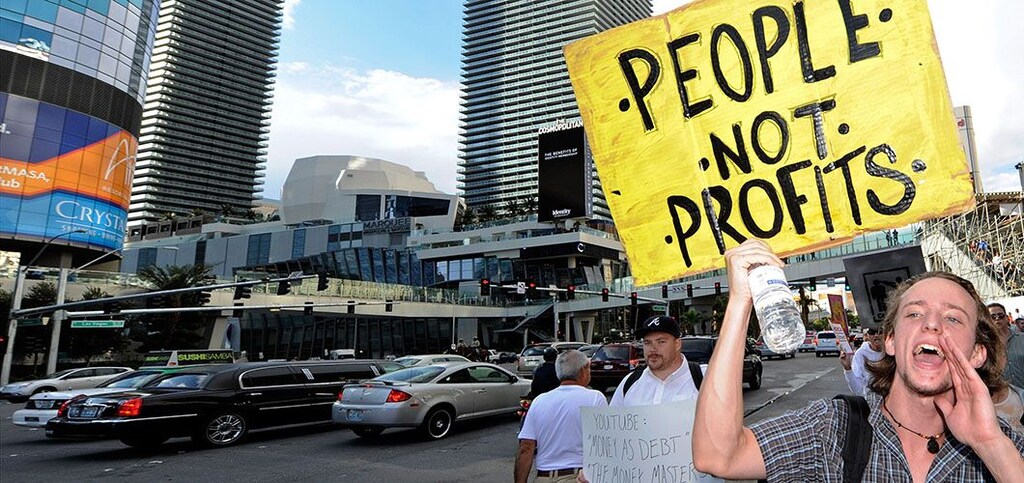Next time you look in the mirror, picture yourself with slicked-back hair and suspenders a la Gordon Gekko, the amoral financier Michael Douglas portrayed in 1987’s Wall Street. Now smile and say, “Greed is good,” and imagine that you and other tech entrepreneurs are the most-hated businesspeople in America.
It may seem far-fetched that people who started technology companies in the aughts could be equated with anything from the '80s, much less the poster bad boy of Wall Street. But recent events have suggested that something like that isn't so incredible—and, in fact, may be already starting to happen.
A Gallup Poll of attitudes toward industries taken last summer found that the computer industry experienced the second-biggest decline of the 25 industries studied. The only industry that had a bigger fall-off was health care. In fact, all the tech-related fields, including Internet and telephone industries, showed a fall-off in positive feelings.
How the Mighty Have Fallen
What’s going on? One possible explanation is that it's simply a correction. In 2012, the computer industry had the highest positive rating of any industry in the 12 years Gallup has done its annual Work and Education poll. Today the computer industry is still the most favorably viewed industry by a wide margin.
Other indicators, however, suggest that America’s love for entrepreneurial techies is on the wane. Twice in a two-week period last fall, demonstrators in San Francisco and Oakland blocked private buses ferrying Google and Apple employees to work. Tires were slashed and windows broken in a protest against gentrification and rising rents.
Individual tech executives have also been singled out. Yahoo CEO Marissa Mayer was criticized last year for bidding $33,000 at a charity auction for a designer playhouse for her children to play in. Napster founder and former Facebook president Sean Parker was widely lambasted for his June 2013 multimillion-dollar wedding that featured a concert by Sting and guests who all wore costumes created by the costume designer for The Lord of the Rings.
Those sorts of stories evoke memories of the likes of former Tyco CEO Dennis Kozlowski. In a 2003 trial, Kozlowski was convicted of looting the security systems conglomerate of hundreds of millions of dollars and blowing it on his own multimillion-dollar wedding, as well as iconic extravagances like a $6,000 gold-threaded shower curtain and a $16,000 dog-shaped umbrella stand. Kozlowski got out of prison on a work-release program last year after serving eight years. So far, no tech titans appear to be in line for similar treatment, but there’s no question the Silicon Valley image is a little tarnished.
Money Changes Everything
San Francisco entrepreneur Jesper Andersen, who has founded two tech startups, agrees that there's a risk that tech entrepreneurs are taking on the role formerly filled by the likes of Gekko. Andersen says much of it is due to great wealth being showered on young entrepreneurs whose lives are on display like never before.
“What you’re seeing now is a lot of money going to very young people who, because of social media, are given really loud microphones,” Andersen says. “That leads to unfortunate things that get magnified. We’re shining a light on the most malignant examples of tech entrepreneurs right now.”
Of course, this isn’t the first time technology has produced sudden wealth for large numbers of young techies. But in past booms, like the 1990s dotcom bubble, the overall economy had been healthier. Today, the economy is only sluggishly recovering from the worst recession it's seen since the Great Depression, and $33,000 playhouses and private Sting concerts may seem a little more controversial to people who've been out of work for years and are struggling to pay for basic needs.
Is Big Brother Watching?
Technology’s presence has also vastly increased. The rise of big data has made ordinary people aware that technology gathers far more information about them than they ever realized. Meanwhile, the revelation that tech companies have cooperated with the National Security Agency to turn over communication records has made many people less trusting of tech companies, even as the global Internet allows them to grow ever larger and much more rapidly.
“People are scared of that,” Andersen says. “They feel like they’re loosing control of private entities that aren’t necessarily acting in their own interest.”
Business owners in non-tech fields who are struggling to get modest bank loans for expansion can’t help but notice the hundreds of millions of dollars in investment capital raised by tech startups. These investments often seem to go into companies that, in many cases, have little or no proven business model, much less profits.
So are we, indeed, on the brink of a widespread backlash that will jerk tech entrepreneurs back from most-admired status to the ranks of Gordon Gekko and The Wolf of Wall Street's Jordan Belfort? If so, we still have a long way to go. Despite the slump in positive ratings last year, the computer, Internet and telephone industries still have strongly positive images and are miles ahead of cellar-dwellers like the oil and gas industry and the federal government.
And there’s no question that, for every tech billionaire indulging in a million-dollar private party, there are a slew of startup founders working hard at businesses that promise to do more than improve their founders’ bank balances.
“There are a lot of companies that want do to good,” Andersen says. “I'm hopeful that we’ll start to recognize that side of tech again and start to create more companies like that.”
Read more articles on startups.
Photo: Getty Images




